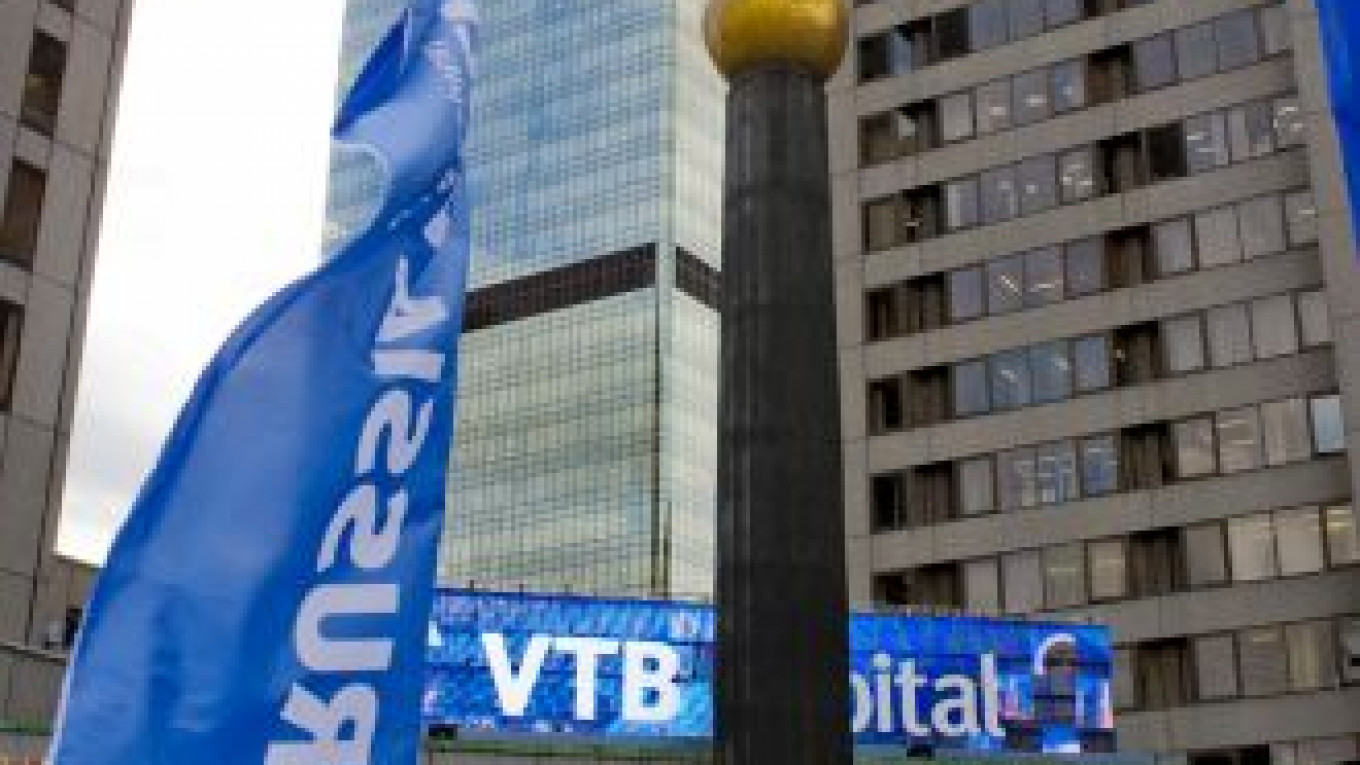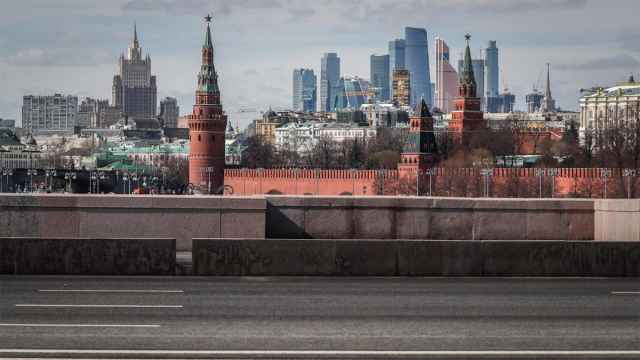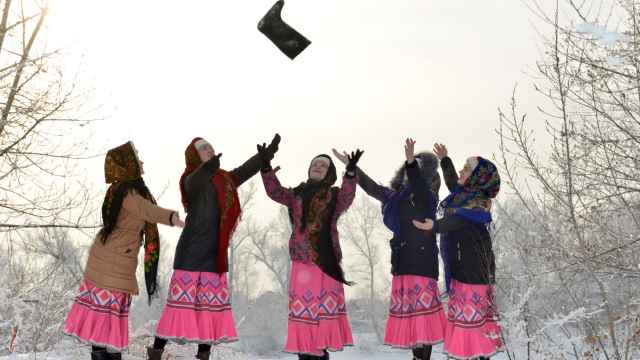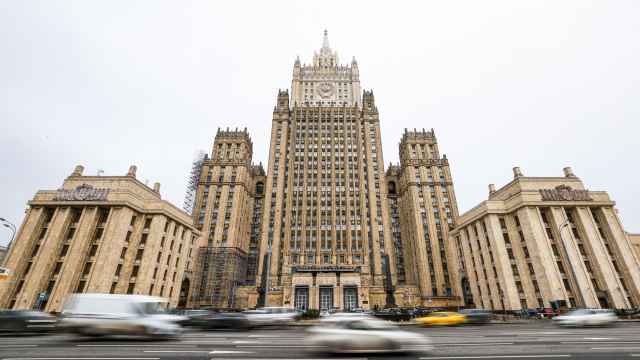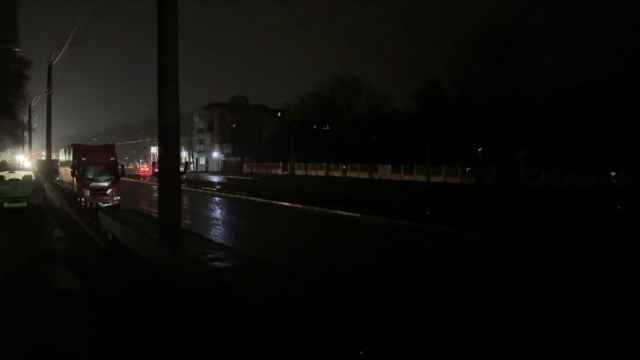State-controlled bank VTB will buy back its stock from retail investors at the 2007 issue price of 13.6 kopeks per share over the next two months in a move aimed at preserving the reputation of the country's second-largest lender, Prime Minister Vladimir Putin said Thursday.
The bank will start buying shares next month, with the transaction to be completed by May, Putin told a business forum organized by the Russian Union of Industrialists and Entrepreneurs.
"The bank's management has made a very fair and, I believe, morally thought-out decision … to buy back the shares at the issue price to preserve its business and commercial reputation in the eyes of society and investors," he said.
The buyback price is nearly twice VTB's Wednesday closing price, ahead of the announcement of the deal's details.
VTB, in which the state holds 75.5 percent, made an independent decision without any pressure from the government, Putin said.
"We didn't make the bank do this, … although the bank is state-owned it was an independent decision by the management," he said.
In a populist move, Putin, who runs for the presidency next month, proposed to VTB's head Andrei Kostin last week to consider buying back equity from small investors who participated in the bank's "people's IPO" in 2007 and took a hit after the share price plummeted — which the prime minister attributed to the financial crisis.
VTB will make an offer to both individuals and legal entities that participated in the IPO and remained in its shareholders register as of Feb. 1, the bank said in a presentation Thursday.
This is more than 114,000 shareholders — 105,000 of which will be able to sell their stock in full, the presentation said, Interfax reported.
The bank will pay up to 500,000 rubles ($16,600) to each shareholder, while overall buyback expenses won't exceed 16 billion rubles, according to the presentation.
The bank's retail unit, VTB 24, which was in charge of the 2007 emission, will buy the equity back, its head Mikhail Zadornov said.
The buyback won't affect the company's 2012 earnings because VTB will fund it from its charter capital, VTB board member Yekaterina Petelina told a news conference. Capital will decline 7 billion rubles to 8 billion rubles after the buyback, the company's presentation said.
According to current legislation, a company conducting a buyback can't proceed with an offer to one group of investors while excluding others. Kostin didn't rule out that some investors could sue the bank because of the buyback scheme, but he said there is little chance that a court would rule in their favor, RIA-Novosti reported.
Meanwhile, investors weren't encouraged by the move, as VTB declined 1.5 percent to close at 6.96 kopeks per share.
The situation is "absolutely unusual," and negative for the market and the bank's reputation, because it results in uncertainty and misunderstanding for investors, and has high risks behind it, said Leonid Slipchenko, an analyst with UralSib Capital.
"Some investors will be discriminated against compared to those who bought shares during the IPO. This doesn't add anything positive" to investors' confidence, he told The Moscow Times.
VTB Capital is seeking to hire about 200 bankers this year under a new incentive program linked to its parent company's share price, Bloomberg reported Thursday.
"We have about 1,300 employees now at VTB Capital, and we are looking to grow 15 percent," first deputy chief executive Yury Solovyov said in a phone interview Wednesday. "We will be hiring in Singapore, New York and Hong Kong. We just hired an equity trading team in Dubai."
VTB Group chief Andrei Kostin created VTB Capital in 2008 and pledged to spend $500 million building the business, including hiring Solovyov and more than 100 other bankers from Deutsche Bank. Within two years, the unit became the biggest organizer of Russian equity sales and the first domestic company in the post-Soviet era to underwrite the most bond sales.
A Message from The Moscow Times:
Dear readers,
We are facing unprecedented challenges. Russia's Prosecutor General's Office has designated The Moscow Times as an "undesirable" organization, criminalizing our work and putting our staff at risk of prosecution. This follows our earlier unjust labeling as a "foreign agent."
These actions are direct attempts to silence independent journalism in Russia. The authorities claim our work "discredits the decisions of the Russian leadership." We see things differently: we strive to provide accurate, unbiased reporting on Russia.
We, the journalists of The Moscow Times, refuse to be silenced. But to continue our work, we need your help.
Your support, no matter how small, makes a world of difference. If you can, please support us monthly starting from just $2. It's quick to set up, and every contribution makes a significant impact.
By supporting The Moscow Times, you're defending open, independent journalism in the face of repression. Thank you for standing with us.
Remind me later.


